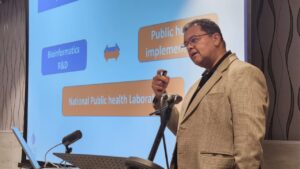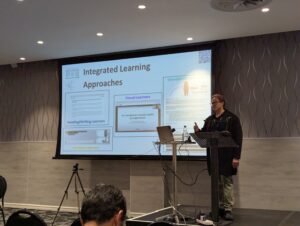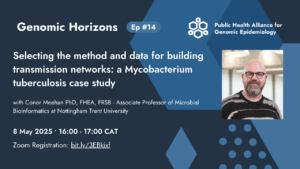In this quarter’s edition of the PHA4GE newsletter, we shine a spotlight on Dr. Rosaline Macharia from the University of Nairobi, Kenya.
Please tell us about yourself.
I graduated from SANBI, University of Western Cape with a PhD in Bioinformatics in the year 2016. Soon after I joined the University of Nairobi, Kenya as a full-time lecturer at the Centre for Biotechnology and Bioinformatics (CEBIB). I got interested in the field of Bioinformatics because I found it to be aligned to the tasks I enjoyed as a young girl: playing with computers, data analysis and training. Through my current position, I have an opportunity to train and mentor other upcoming scientists and to use data analysis to improve public health. Prior to taking up my current role I served as a Bioinformatics consultant at the International Center for Insect Physiology and Ecology (icipe) and as a visiting lecturer in Pan African University of Science and Technology. I am a member of the PHA4GE and the African Biogenome Project and I serve as an external reviewer for the DAAD-in country scholarship programme.
How does your work at University of Nairobi relate with that of PHA4GE?
My current role as a lecturer involves training different cadres of people ranging from students to established scientists. While training a cohort of doctors on Bioinformatics back in the year 2019, I realized that there was a grim need for basic training in Bioinformatics for the personnel in public health. I chose to join the Training and Workforce Development Working Group under PHA4GE to participate in development of standardized training materials for different groups of people in Public health. I am keen to witness the transformation in the public health sector in our country as a result of such structured training.
What do you view as one of your greatest achievements in being a scientist?
I would say through science I have developed passion for training and supporting learners to achieve their goals. Good training is key for future development in science.
What is your guidance to anyone who wishes to be in the field of genomics and bioinformatics?
I would encourage one to have curiosity and open-mindedness beyond classwork. It is also important for one to identify the competency they wish to acquire before beginning the formal training.
For more information about the activities of the Training and Workforce Development Working Group, please click this link.



